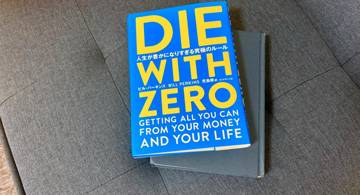Overview

- Friend: The other day, I watched “Interstellar” for the first time. Yeah, I know—super late to the game.
- Midori-san: Ah, that’s the one about going into the 5th-dimensional world. It’s complicated but really interesting.
- Friend: I like Christopher Nolan’s films. I’ve seen Tenet twice already.
- Midori-san: Oh, he directed that too? The one about reverse playback, right? It’s hard to follow but also fascinating.
- Friend: Exactly. Also Inception. Haven’t seen it?
- Midori-san: Of course I have. You know, the one with the spinning coin?
- Friend: You remembered it so well—it’s funny. There’s also Memento and others.
- Midori-san: Those are all difficult but captivating. Wait—are you into movies?
- Friend: Well, I don’t watch many movies, but I might watch only Christopher Nolan’s. I want to see Oppenheimer next.
- Midori-san: Oppenheimer as in the guy who invented the bomb... not the dynamite person, right?
- Friend: The atomic bomb, yes.
- Midori-san: Ah, I see. That sounds cool.
- Friend: It’s a heavy topic, so I hesitate, but if it’s my favorite director, I might go for it.
- Midori-san: That’s a good way to think about it. Now I want to watch Oppenheimer, and I’m eager to rewatch Interstellar too.
So, I rewatched Interstellar and wrote down how my feelings differ from ten years ago.
Reflections Compared to Ten Years Ago
Ten years ago ↓
(10 years ago reflection) At first, I didn’t quite grasp what was happening on Earth. Maybe it could have conveyed the sense of “heading toward destruction” a bit more strongly.
During this most recent viewing, I did sense the “heading toward destruction” part. I felt that although people are surviving now, the future is bleak. Everyone seems to recognize it yet lives while looking away. Professor Brand’s line—that “in the future, all plant life will disappear, and we’ll suffocate from lack of oxygen”—resonated deeply and filled me with despair.
The reason I didn’t feel the sense of “heading toward destruction” back then could have been my limited real-world experience. In the film, Cooper says, “You can’t tell a child that the world is ending. I want my child to have hope.” That line reminded me of my younger self, ten years ago, who didn’t sense the impending doom—maybe because Cooper puts on a “It’s okay, it’s okay!” front in front of his children, I also thought, “Yeah, it’s fine” at the time.
(10 years ago reflection) Back then, I thought it was too forced when NASA people praised Cooper, saying “You’re the only pilot.” But that turned out to mean he was chosen—because higher-dimensional beings were sending messages through books and patterns to Cooper.
Indeed, the feeling that “Cooper was chosen” was strong. Given that the project started by an approach from some 5th-dimensional entity, anyone personally contacted by that entity would naturally be key. Still, even after ten years, it’s a bit strange to fully understand why only Cooper would be seen as the pilot to save humanity.
This time's impressions ↓
-
This viewing made me feel more deeply the line, “It’s not me who was chosen—it's Murph.” Perhaps that comes from aging. Early in the movie, a teacher tells Cooper, “We are bridge-builders,” and he reacts angrily. Yet in the end, he realizes that he is a bridge to Murph, who in turn is a bridge to future humanity—which has evolved into 5th-dimensional beings placing him there. So his initial anger isn’t about being a “bridge-builder,” but frustration from doing the wrong job, not his true calling.
-
Tom, the son, is such a good kid. Why don’t I remember him well? Maybe because he grows up and loses appeal when driven mad.
Regarding Amelia Brand’s proposal to prioritize Dr. Edmonds’s planet, which Cooper and Romilly reject:
- Originally, both Edmonds’s planet and Mann’s seemed equally viable. Edmonds’s planet wasn’t influenced by the black hole and had potential for life, while Mann was brilliant and still transmitting signals. So Romilly suggests voting.
- Cooper suspects Brand is biased—preferring Edmonds because of their romantic connection.
- After the accusation, Brand abandons logical argument and pushes only with “the power of love.” Her inconsistency makes her less reliable. The men react with shock.
- Despite the tension, I think it was a relatively ideal decision process—combining logic and emotion, revealing all available information, then making a majority vote.
- That’s why Brand's later snide remarks to Cooper were unnecessary.





